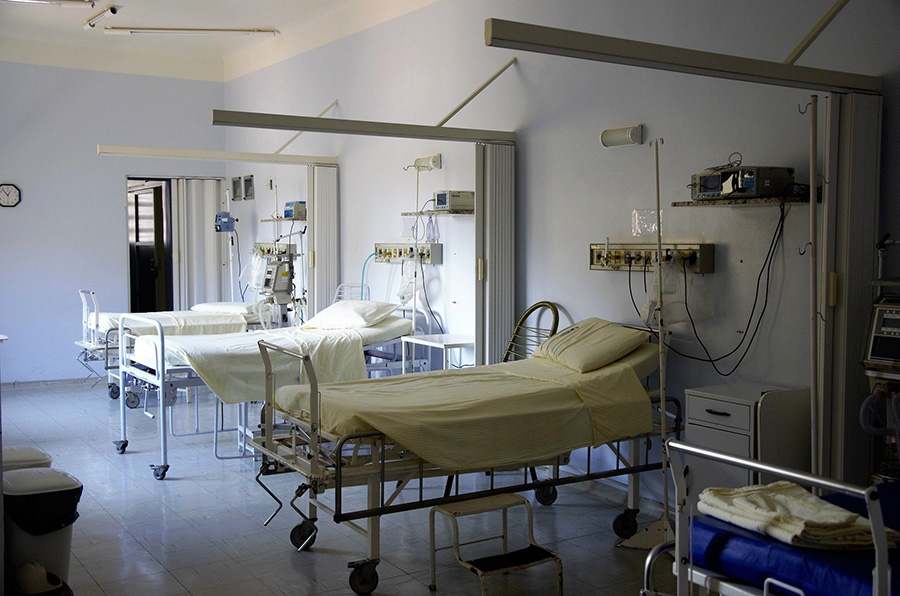Tenet Healthcare is one of the largest owners of acute-care hospitals in the country—with 65 in its network sprinkled across the U.S., generating a collective net revenue of nearly $15 billion.
But when Tenet CEO Ronald Rittenmeyer spoke at the annual J.P. Morgan Healthcare Conference last month, it was ambulatory surgical centers (ASCs) at the top of his mind. Specifically, he said scaling up Tenet’s ASC subsidiary, United Surgical Partners International (USPI), was one of the company’s top strategical commitments heading into 2021.
One month after paying $1.1 billion with SurgCenter Development to acquire up to 45 ambulatory surgery centers in nine states, Tenet vowed to add 40 more ASCs in 2021. When talking about the musculoskeletal procedural space, Tenet COO Saum Sutaria, MD, said, “The amount of scale that Tenet has achieved with USPI in this arena surpasses anything we have seen in this environment under a single entity.”
Since Tenet has acquired USPI in 2015, the subsidiary has seen its EBITDA grow from 4 percent to an estimated 45 percent this year. It has become the biggest ASC chain in the U.S. The margins on its ASCs far surpass the hospital business, Tenet reported at the conference, and the company expects annual same-store surgical revenue growth of more than 6 percent in the coming year.
“It is growing more quickly in the ambulatory environment than the hospital environment,” said Rittenmeyer.
Payer pressure
With those kinds of high margins and a sector with significant growth potential, Tenet’s not the only health care organization bullish about the ASC marketplace. Ascension, another large health system, also promised to expand ASC operations at the J.P. Morgan Healthcare Conference. Ascension’s chief strategy and innovations officer Eduardo Conrado said during the event that the organization plans to double its ASC portfolio from the 61 it currently operates. And it’s not just large health systems—independently-owned Baton Rouge General Medical Center recently opened a $12 million ambulatory surgical center across the street from the main hospital.
Hospitals and health systems across the country are getting in on the act. According to a survey from Avanza Healthcare Strategies, a consulting firm, 76 percent of larger hospitals and health systems—those with 200-plus beds—report increasing their investments in ASCs. In two years, the number of hospitals owning or affiliating with more than one ASC has jumped up 17 percent.
One reason for this trend? Payer pressure.
“Payers are seeing that a lot of these ambulatory cases can be done outside of a hospital and in some parts of the country, payers are only paying for certain procedures when they are done in a surgery center. If they were done in a hospital you have to prove they are medically necessary to be done there before payers will pay for it,” says Joan Dentler, President and CEO of Avanza.
The commercial payer space welcomes the idea because ASCs are often reimbursed half of what an inpatient hospital would be for certain procedures. Moreover, they are seeing movement at the federal level in ASC reimbursement. As part of its “Hospital Without Walls” program, CMS allowed ASCs to be temporarily certified as hospitals and provide inpatient care for longer periods than normally allowed during the pandemic.
On a more permanent basis, CMS recently added 11 procedures to the ASC covered procedures list and in 2020, it removed 266 orthopedic procedures from the inpatient-only list. “The intention is to remove the inpatient only list altogether by 2024. This will help ASCs grow and it’s in the interest of hospitals and health systems to be a part of that,” says Beth LaBouyer, executive director of the California Ambulatory Surgery Association.
Patient approved
Dentler says ASCs are lean and nimble organizations compared to inpatient hospitals, both in terms of how they operate and cost structure. As such, the same cost value that payers see in ASC translates to patients, says Carole Guinane, executive director of ASC Operations for Los Angeles-based Cedars Sinai.
“There is a real value add to have choices for patients. Having freestanding surgery centers offers a venue for patients that don’t require hospitalization or a higher level of care in a hospital. Many times, it’s a cheaper venue for patients and the quality is outstanding. There’s a high customer satisfaction,” says Guinane. Cedars Sinai has eight ASCs across a range of specialties, she says.
Traditionally, Dentler says that health systems don’t typically go into the ASC world to make a huge profit, but rather to not lose these surgical cases to another organization. “If you have a patient who will choose to have a procedure in a surgery center and they don’t own one, they’ll just lose out on that revenue,” Dentler says. “It’s the old adage, 50 percent of something is better than 0 percent of nothing.”











